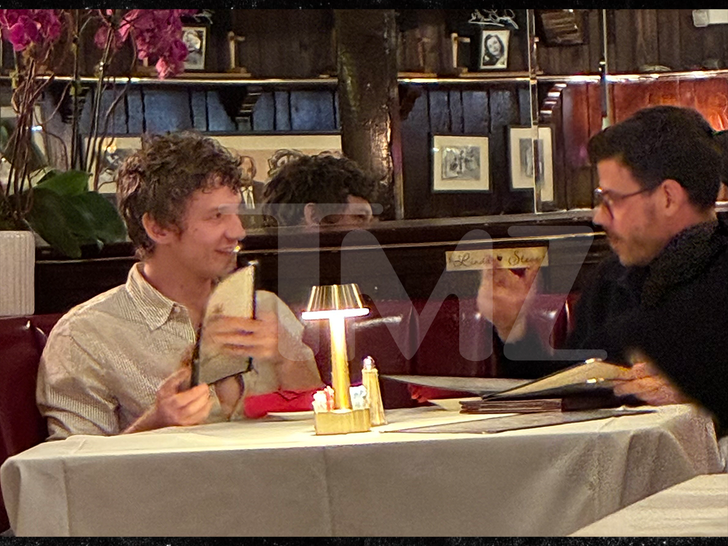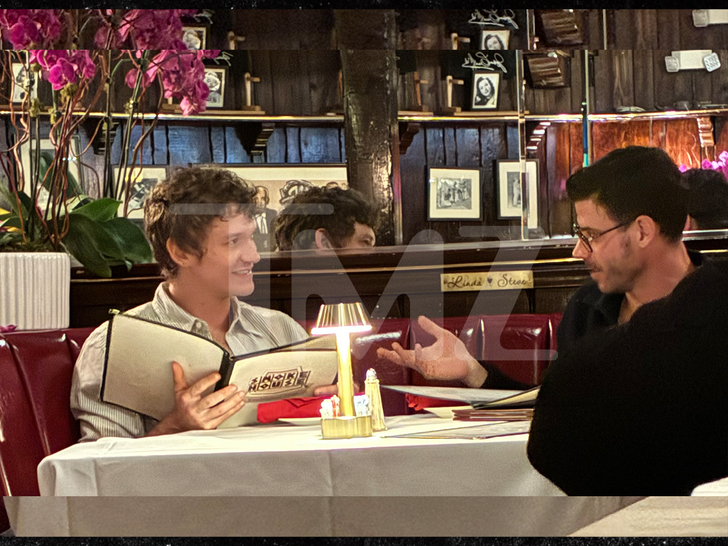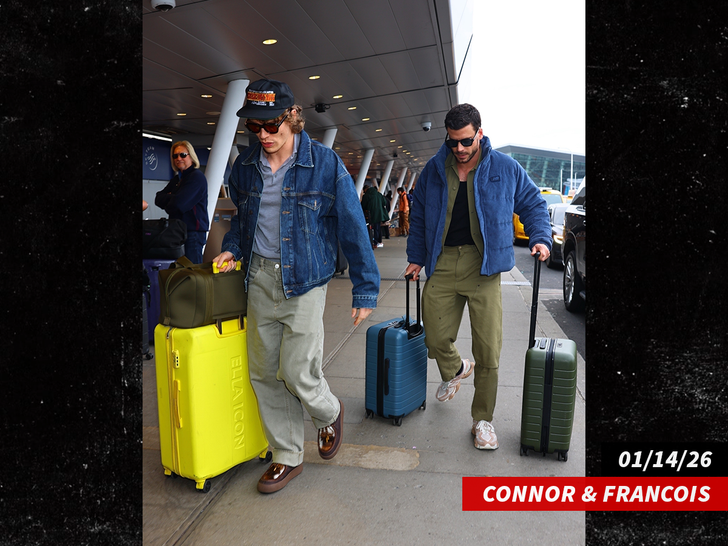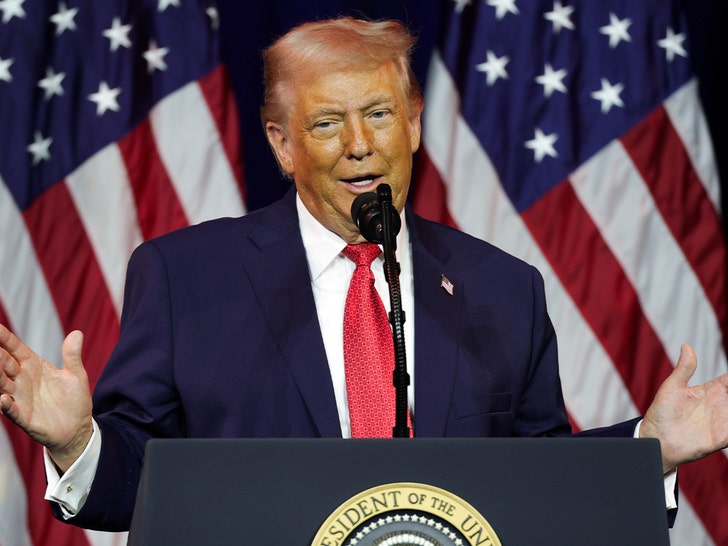Entertainment
‘Heated Rivalry’ François Arnaud & Connor Storrie Fuel Rumors With Dinner
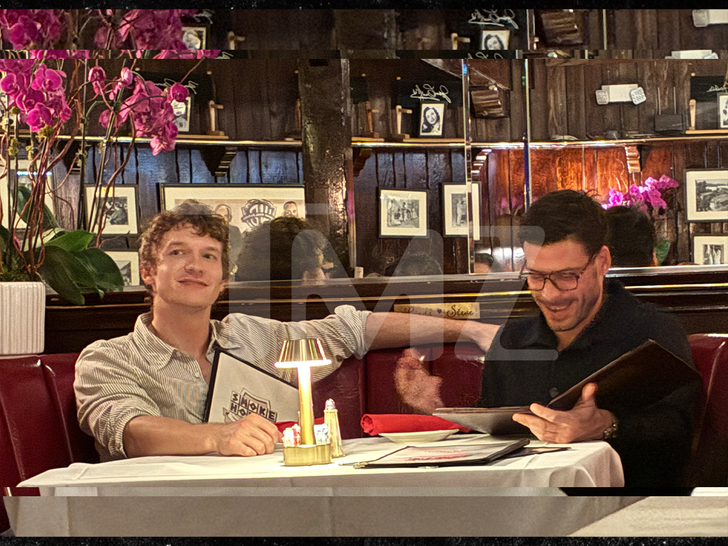
‘Heated Rivalry’ François Arnaud
Guess I’m Skating Pretty Close With Connor Storrie!!!
Published
François Arnaud might be choking on that “none of your f***ing business” line he tossed at Andy Cohen … ’cause the rumors about him dating Connor Storrie are getting louder, steamier, and a lot harder to dodge!
TMZ snagged photos of the two actors settling in for a cozy dinner at the old-school, fancy Smoke House in Burbank … and while there wasn’t full-on PDA, the energy was very much date night. Dim lighting, nonstop laughs, and that locked-in, only-you-exist vibe said plenty.
There’s no denying the chemistry here — and if this is the real deal, François better brace himself for even more backlash from diehard “Heated Rivalry” fans who seriously struggle separating fantasy from real life. Even NHL Commissioner Gary Bettman has said he is a big fan.
For those not fully caught up — Connor plays half of a forbidden, fan-obsessed romance with Hudson Williams’ character Shane Hollander in the steamy, queer hockey drama — and viewers are deep in their feelings. So deep, in fact, that when Connor was first spotted with François — who plays Scott Hunter in the show — at JFK earlier mid-June, the internet spiral got ugly fast … including reported death threats.
Bottom line — the frenzy isn’t slowing down. Whether this turns into a full-blown IRL romance or not, fans (and Andy Cohen) may want to cool it, stop fanning the flames, and wait for S2 to get their fix of Connor/Shane’s on-screen chemistry.
Bravo

1/19/2026
And lucky for Connor and François? The show’s already been renewed … meaning they’ll be seeing a whole lot more of each other, one way or another.
Entertainment
Kim Kardashian Teases ‘My Next Baby’ As Billion-Dollar Brand Expands
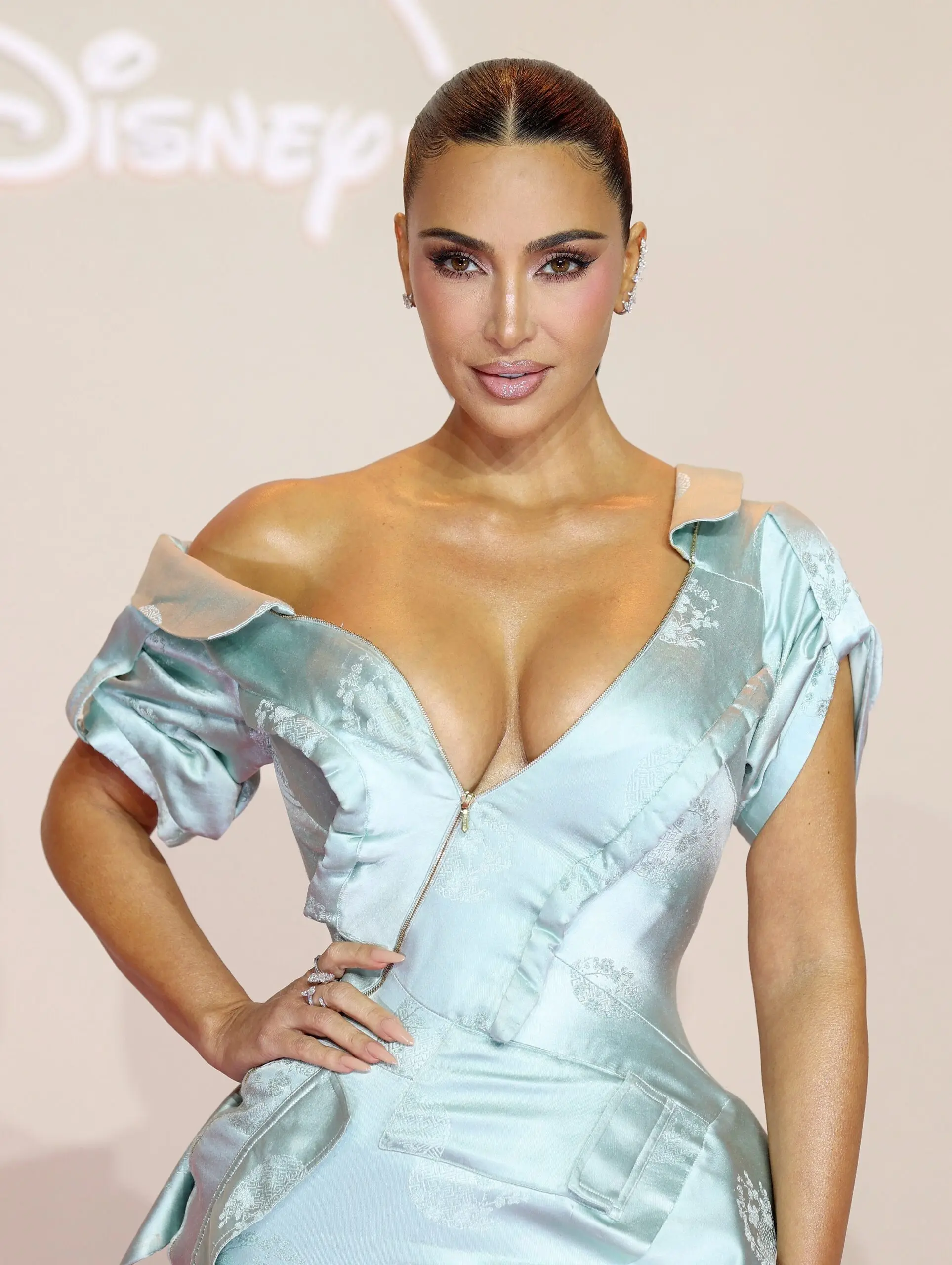
The billionaire is set to introduce some new products under the SKIMS banner, and she is beyond excited about reawakening her passion for beauty and fragrance once more as she advances to the next frontier for the brand.
Kim Kardashian launched the shapewear and clothing brand on September 10, 2019, and emerged as a direct-to-consumer business that immediately skyrocketed its success and popularity, setting the foundation for its current $5 billion valuation.
Article continues below advertisement
Kim Kardashian Spilled Her Very Near-Future Plans For SKIMS

The reality star confirmed that there will be new drops to introduce the world to her new beauty and fragrance line very soon, which will be housed under her soon-to-be-launched SKIMS Beauty brand. Kim added that the collection will also feature a signature scent, which she described as “my next baby.”
Kim has tried to launch a beauty brand several times in the past, with the establishment of KKW Beauty in 2017 and SKKN By Kim in 2022, which was licensed through Coty. Now that she has reacquired her SKKN brand, the star is set to relaunch it through the very successful SKIMS umbrella.
Since its launch in 2019, Kim has scaled SKIMS into the arms of the elites, including becoming the official underwear of Team USA at the Summer Olympics in 2021.
Article continues below advertisement
She then teamed up with Fendi the same year to design shapewear, lingerie, swimwear, outerwear, and accessories, which were inspired by a 1979 Fendi collection designed by the late Karl Lagerfeld.
The company was named one of Time’s Top 100 Most Influential Companies of 2022, and by 2023, Kim graced the cover of the annual Time issue as a homage to including the brand in its 2023 list. SKIMS most recent collaboration is with NIKE for its first-ever footwear, which is a slimmed-down take on the Air Rift.
Complex stated that SKIMS gave the split-toe design footwear a new life with tonal colorways, a see-through mesh upper part, and the S logo traction pattern. The star had raved about the beauty of ballet flats and how reimagining the Nike Rift to look like one was a no-brainer.
Article continues below advertisement
The Hulu Star’s Company Climbed The $4 Billion Valuation Ladder In 2023

Kim’s partner and SKIMS co-founder, Emma Grede, spoke about the growth of the company in a 2023 interview, as noted by The Blast, where she explained that the company is profitable and will make $750 million in sales by the end of 2023.
Customers often waited in line for the brand’s latest drops and in 2022, about 11 million individuals reportedly queued for the brand’s merchandise, creating buzz for the quick sellout process.
Investors also took a bet on the brand in 2023, and the funding round for that year was led by asset manager Wellington Management with participation from existing investors like D1 Capital Partners, Imaginary Ventures, and Greenoaks Capital Partners.
Article continues below advertisement
SKIMS raised $270 million in the 2023 founding round, pushing the company’s value to $4 billion from the initial $3.2 billion in 2022.
The fundraising round in 2021 solidified the brand’s spot on the market and sealed Kim in the billionaire conversation. Kim currently retains her position in the company as the largest shareholder, holding a majority stake alongside her partner, Grede.
According to the co-head of private investments at Wellington Management, SKIMS has maintained a steady and unprecedented momentum since its launch, and the company sees it as an honor to partner with the brand and support it through its growth stage.
Article continues below advertisement
The Reality Star Laid Down The Rules Of Brand Building The Kim K Way

Eager to share the gems she has gathered along the way over the years when it comes to running a business and building formidable brands, Kim teamed up with MasterClass to teach “The Ten Kimmandments” of business.
The mother-of-four will appear on the show as a coach to guide her audience on how to make money by expanding and building their brand from the ground up, just like she did with hers. The Blast reported that Kim urged her students to begin the first step towards financial domination by seeing themselves as the product.
The media personality cemented herself as a household name in the business industry by venturing into video games, and even a retail fashion business alongside her mother and her sisters decades ago.
Last year, Goldman Sachs helped investors boost their confidence in Kim by dropping over $200 million in another funding round to help SKIMS open more flagship stores around the world.
The new round of funding boosted SKIMS valuation to $5 billion, a massive rise from 2023’s $4 billion. SKIMS was also expected to close 2025 with $1 billion in sales while shifting the focus to physical retail for the next few years.
Article continues below advertisement
The 45-Year-Old Added To Her Real Estate Collection With An Audacious Purchase

The TV personality has an impressive real estate portfolio that fits her billionaire status and matches the bold moves she makes in the conference room. Last year, she snatched up a $7 million property very close to her impressive $60 million mansion in Calabasas, where she currently lives.
The new home boasts four bedrooms, five bathrooms, fireplaces, a private spa, and a green, lush backyard perfect for horse riding. Kim’s new home will serve as an expansion of the sprawling property she acquired from her estranged husband, Kanye ‘Ye’ West, following their divorce.
The former couple had bought the home for $20 million in 2014 and worked alongside designer Axel Vervoordt from Belgium to bring the house to life and present it as a peak representation of minimalistic beauty, which featured tons of muted tones and open spaces.
Kim reportedly paid Ye $23 million to acquire the house, although insiders have clarified that the payment was for all the land and the lots around the house, and Ye still maintained ownership of the actual building.
Article continues below advertisement
Kim Kardashian’s Vision Behind Creating SKIMS

The beauty mogul once revealed that her love for wearing shapewear and the need to expand her shapewear options ultimately led to the birth of SKIMS. She recalled always having to deal with pieces that were too thick, too loose, or too tight, which also lacked the proper support and failed to mold her body the way she desired.
Kim noted that she began to play around with the scissors and fabrics to construct pieces that would fit into her vision and even dye these fabrics to suit her skin tone, and gradually, the vision for SKIMS took flight.
The billionaire continued that the reason her brand had recorded huge success was that she focused on solving dressing issues for women, which was simpler than trying to fix or change their natural shape and figure.
Kim continued that even from her perspective as a founder, she wanted shapewear that would allow her wear great fashion pieces comfortably without wondering about any mishaps.
Kim concluded that the most important things about her brand are the fact that it caters to all women of all shapes, tones, and sizes, as she began production with at least nine shades and an extended size range to accommodate more demographics.
Congratulations, Kim Kardashian!
Entertainment
Lil Jon’s Son Nathan Smith Dead: DJ Young Slade Found at 27

UPDATE, 2/6/26 at 3:11 p.m. ET:
Georgia police have recovered the body of rapper Lil Jon’s missing son, Nathan Smith (a.k.a. DJ Young Slade). He was 27.
The Milton Police Department in Georgia confirmed via Facebook that on Friday, February 6, “divers with the Cherokee County Fire Department located and recovered a body” in a Mayfield Park pond near Smith’s home.
“The individual is believed to be Nathan Smith, pending official confirmation by the Fulton County Medical Examiner’s Office,” the statement read. “Based on the investigation to date, there is no indication of foul play. However, the Milton Police Department Criminal Investigations Division will continue to treat this as an open and active investigation.”
The police department confirmed that “no further details will be released” until the cause and manner of death have been determined.
‘We extend our deepest condolences to the Smith family during this difficult time,” the statement concluded. “The department respectfully asks the community and members of the media to honor the family’s request for privacy as they grieve and navigate this tragedy.”

DJ Young Slade Noam Galai/Getty Images for MTV
Lil Jon addressed his son’s death in a statement to Us on Friday. He thanked fans for “all of the prayers and support in trying to locate him over the last several days” and all the law enforcement agencies involved in the search.
“I am extremely heartbroken for the tragic loss of my son, Nathan Smith. His mother [Nicole Smith] and I are devastated. Nathan was the kindest human being you would ever meet. He was immensely caring, thoughtful, polite, passionate and warmhearted — he loved his family and the friends in his life to the fullest,” the rapper said. “He was an amazingly talented young man; a music producer, an artist and engineer and graduate of NYU. We loved Nathan with all of our hearts and are incredibly proud of him. He was loved and appreciated, and in our last times together, we’re comforted in knowing that we expressed that very sentiment to him.”
Original story below:
Rapper Lil Jon is praying for the safe return of his son, Nathan Smith (AKA as DJ Young Slade), after he was reported missing in Georgia.
According to the Milton Police Department, Smith, 28, was last seen on Tuesday, February 3, at 6 a.m. local time in the vicinity of Baldwin Drive and Mayfield Road in Milton, Georgia.
“Subject ran out of his house and has been missing since,” police said in a missing persons report posted via Facebook on Tuesday. “Subject left on foot and does not possess a phone. He may be disoriented and in need of assistance. Family and friends are concerned for his safety.”
Smith is described as 5’9 and 150 pounds with short black hair and brown eyes.
Anyone with information is asked to contact the non-emergency dispatch line at 678-297-6300 option 1.
Local outlet Rough Draft Atlanta reported that police were seen searching Mayfield Lake, which sits along Baldwin Drive. At this time, it’s unclear if it is related to Smith’s disappearance. (On Wednesday, February 4, police confirmed to Us Weekly that they have “no additional update and Nathan Smith is still missing.”
“The family is asking for privacy at this time,” Lil Jon’s rep said in a separate statement to Us on Wednesday. “We are also asking for continued prayers for Nathan to come home safe. Thank you.”
Smith is a DJ and musician who performs as DJ Young Slade or just Slade. His latest single, “Feels,” was released in March 2025.

DJ Young Slade Kevin Winter/Getty Images for CBS Radio, Inc.
“He’s in the music business. He’s an engineer and an artist,” Lil Jon told OK! Magazine in December 2024 when asked about his son. “He started off as a DJ, and he knows [my hit ‘Get Low’] is one of those songs you have to play. We haven’t talked about how he feels about it, but I’m sure he likes it.”
Lil Jon — who shares Nathan with estranged wife Nicole Smith — continued, “It’s cool he’s in the same business as me. I didn’t know what he was going to be when he was younger. I wasn’t trying to influence him to be in music. He had a natural musical ear. I remember he was 11 years old and we were in the car and the DJ was mixing on the radio and he could tell what song was coming in before it came on.”
Nathan’s most recent Instagram post was a photo of himself with his manager and Bow Wow visiting the State Farm Arena in Atlanta.
“Three generations. One culture. Legacy isn’t a moment, it’s a continuum. Young Slade 🤝 Bow Wow 🤝 Lil Will Real lineage. Real respect,” he captioned the post on January 6. “Legacy over hype. Different eras, same code. Real respect, real relationships, real history. Still building. Still standing. Still us. 🧱🔥.”
One month earlier, Nathan was able to attend iHeartRadio’s Jingle Ball in Atlanta with Lil Jon and other musicians.
“Crazy room crazy moment,” he wrote via Instagram on December 23, 2025. “@iheartjingleball was special.”
Entertainment
Trump Washes Hands of Racist Obama Video, Refuses to Apologize
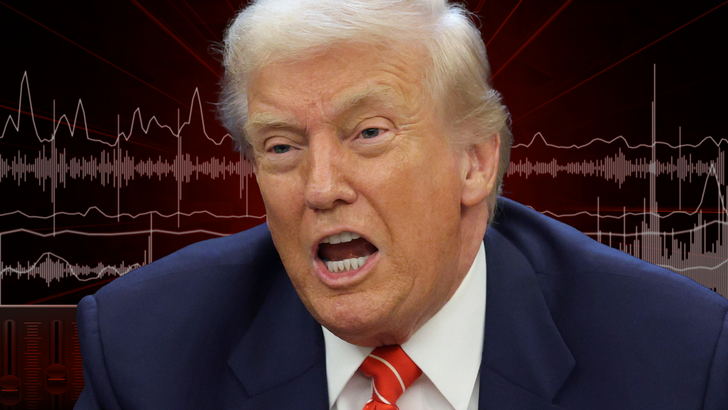
President Trump
Sorry Not Sorry About Obama Ape Video My Staff Posted
Published

YouTube / The White House
President Trump claims he was as surprised as anyone about the imagery in a video he shared earlier in the day of Barack and Michelle Obama as apes … but he sure as hell isn’t sorry.
Here’s the deal … the president’s Truth Social account posted a video depicting the Obamas as apes … which was met with swift blowback and condemnation on social media and from many on Capitol Hill. The White House initially said the video was fine … but it was later deleted over all the heat.
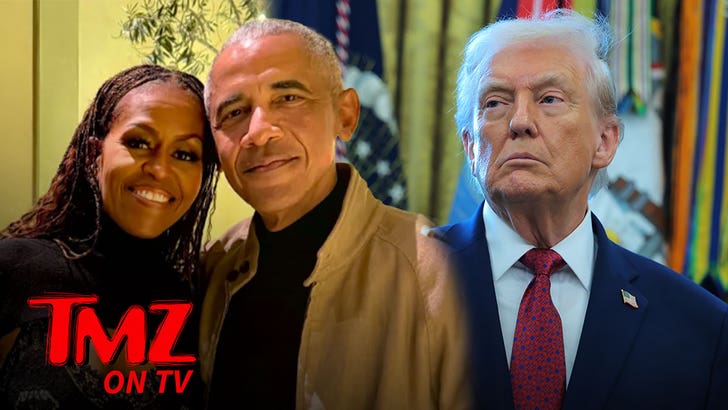
TMZ.com
Trump was pressed by reporters this afternoon aboard Air Force One … and he pleaded ignorance, saying all he knew was the video was a commentary on voter fraud — and had no idea about the Obamas being depicted as apes in the jungle.
Trump punted any responsibility … and laid blame on his staff, saying they clearly did not look closely enough at the video before posting.
Naturally, when asked if he would apologize, Trump said nah … since he had no idea about the racist depiction, he had nothing to be sorry for.
As for Barack and Michelle … they seemingly responded to the video through their foundation — posting a super cute social media post looking back on their love story.
Entertainment
Lil Jon Breaks Silence After Son Nathan Smith’s Is Found Dead

Roomies, Lil Jon and his family have been facing an unthinkable situation that has had many holding their breath over the past few days. What started as a growing concern around his son, Nathan Smith, quickly turned into an intense search that drew in multiple agencies and the surrounding community. Now, devastating news has confirmed their worst fears, with loved ones requesting prayers and privacy.
RELATED: Prayers Up! Lil Jon’s 27-Year-Old Son Reported Missing In Georgia
Nathan Smith’s Body Found In Pond Near Home
Milton police say a body confirmed to be that of Lil Jon’s missing son, Nathan Smith, was recovered Friday from a pond near his home. As previously reported, authorities were first called to the Baldwin Drive area on the morning of February 3 after receiving a report of a missing adult. Lastly, police said Smith had left his residence under unusual circumstances and could not be located. Thus, prompting an immediate and wide-ranging search involving multiple law enforcement and emergency agencies.
Lil Jon Confirms Son’s Passing After Days-Long Search
Lil Jon has since broken his silence, sharing a heartbreaking statement confirming the loss of his son and honoring his life.
“I am extremely heartbroken for the tragic loss of our son, Nathan Smith. His mother, Nicole Smith, and I are devastated. Nathan was the kindest human being you would ever meet. He was immensely caring, thoughtful, polite, passionate, and warmhearted — he loved his family and the friends in his life to the fullest,” the rapper said.
He went on to praise Nathan as “an amazingly talented young man; a music producer, an artist and engineer, and a graduate of NYU.” He added that he and Nicole take comfort in having expressed their love to him. Furthermore, they also thanked the Milton Police Department for their efforts during the search, a moment that has many sending prayers and condolences to the family.
No Foul Play Suspected As Investigation Continues
During the search, investigators expanded their efforts to nearby Mayfield Park, close to Smith’s home, focusing on a pond in the area. Unfortunately, on February 6, around 11:53 a.m., divers with the Cherokee County Fire Department recovered a body from the water. Officials confirmed the body recovered is Nathan Smith, with formal identification pending from the Fulton County Medical Examiner’s Office.
At this time, police say there is no indication of foul play, but the case remains open and active as investigators await the medical examiner’s determination of the cause and manner of death. Dive teams and K-9 units worked around the pond during the search, while authorities have not yet released details about what they recovered. In a statement to CBS News Atlanta, a spokesperson for the Smith family asked for privacy as they grieve and requested continued prayers for Nathan, sentiments echoed by police as they extended their condolences during this difficult time.
RELATED: Prayers Up! Savannah Guthrie Breaks Down In Emotional Plea For Missing Mom, Believed To Have Been Abducted (VIDEO)
What Do You Think Roomies?
Entertainment
Prime Video’s Next Prestige Crime Thriller Soon Arrives as Reacher’s Grown-Up Counterpart
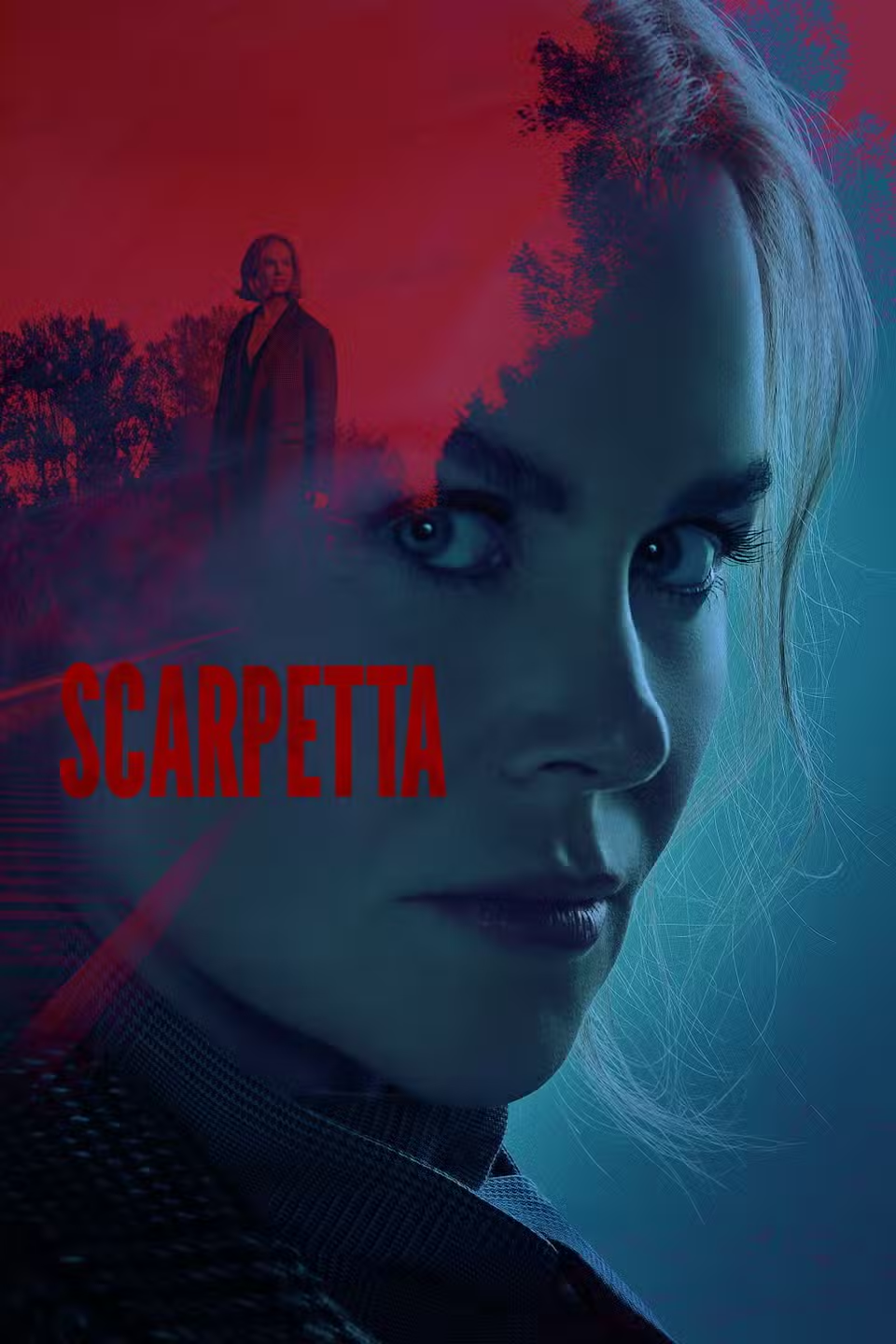
For the past few years, Reacher has been Prime Video’s undisputed book-adaptation champ. It’s dominated streaming charts, spawned a spinoff (Neagley), and turned Alan Ritchson from “that guy from Blue Mountain State” into a full-blown global action star. While Season 4 and the spin-off are still on the horizon, Amazon is already lining up its next prestige upgrade — and this one hits very differently. Enter Scarpetta.
Based on the long-running novel series by Patricia Cornwell, Scarpetta premieres on Prime Video on March 11, 2026, with Nicole Kidman leading the series as Kay Scarpetta: a brilliant forensic pathologist who solves crimes using intellect, science, and cutting-edge technology rather than brute force. This one’s gonna have less bar fights, and more autopsies that quietly ruin everyone’s day.
As for who she is? Scarpetta is a globe-trotting investigator of Italian descent, moving from jurisdiction to jurisdiction as cases demand. The series is being developed by Liz Sarnoff, whose résumé includes Lost and Barry, which is a pretty strong signal that this won’t be a paint-by-numbers procedural. Jamie Lee Curtis co-stars as Kay’s older sister, rounding out a cast that’s already doing the most on paper.
How Many Scarpetta Novels Are There?
One of Reacher’s biggest advantages is volume. Lee Child wrote 30 novels and short stories about Jack Reacher, which means Prime Video could theoretically keep the series running forever if the audience sticks around. Scarpetta is working with the same kind of literary runway. Cornwell has written 29 Kay Scarpetta novels, with the most recent released in 2025. Prime Video won’t struggle to find stories to produce. And that’s why a TV series makes perfect sense, because Hollywood has tried — and failed — to crack Scarpetta before.
In 1992, a feature film starring Demi Moore was planned but quietly fell through, while in 2009, Fox 2000 acquired the screen rights to replicate the success of the Bourne franchise. That version also collapsed, to the surprise of nobody. It wasn’t until 2023 that the gears finally started turning for a proper screen adaptation, and TV was always the right format for it. As for what we should expect? Probably something closer to Ballard — a slow-burn forensic thriller where tension comes from psychology, evidence, and moral pressure, not punches. Although there will be some of those, too.
Scarpetta arrives next month, on March 11, 2026, exclusively on Prime Video.
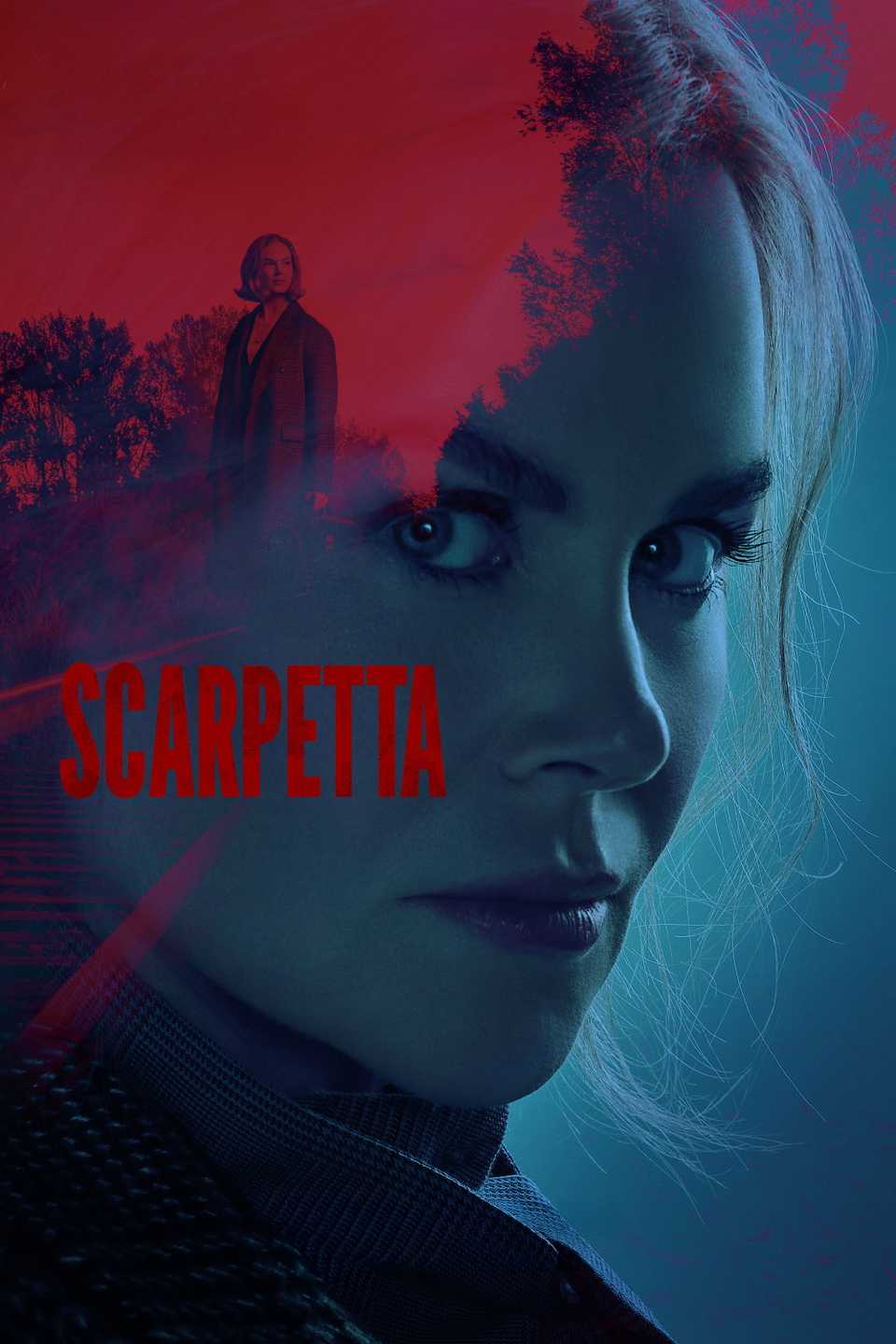
- Release Date
-
March 11, 2026
- Network
-
Prime Video
- Directors
-
David Gordon Green
Entertainment
Andy Cohen Reacts To ‘Real Housewives Of New York’ Spin-Off
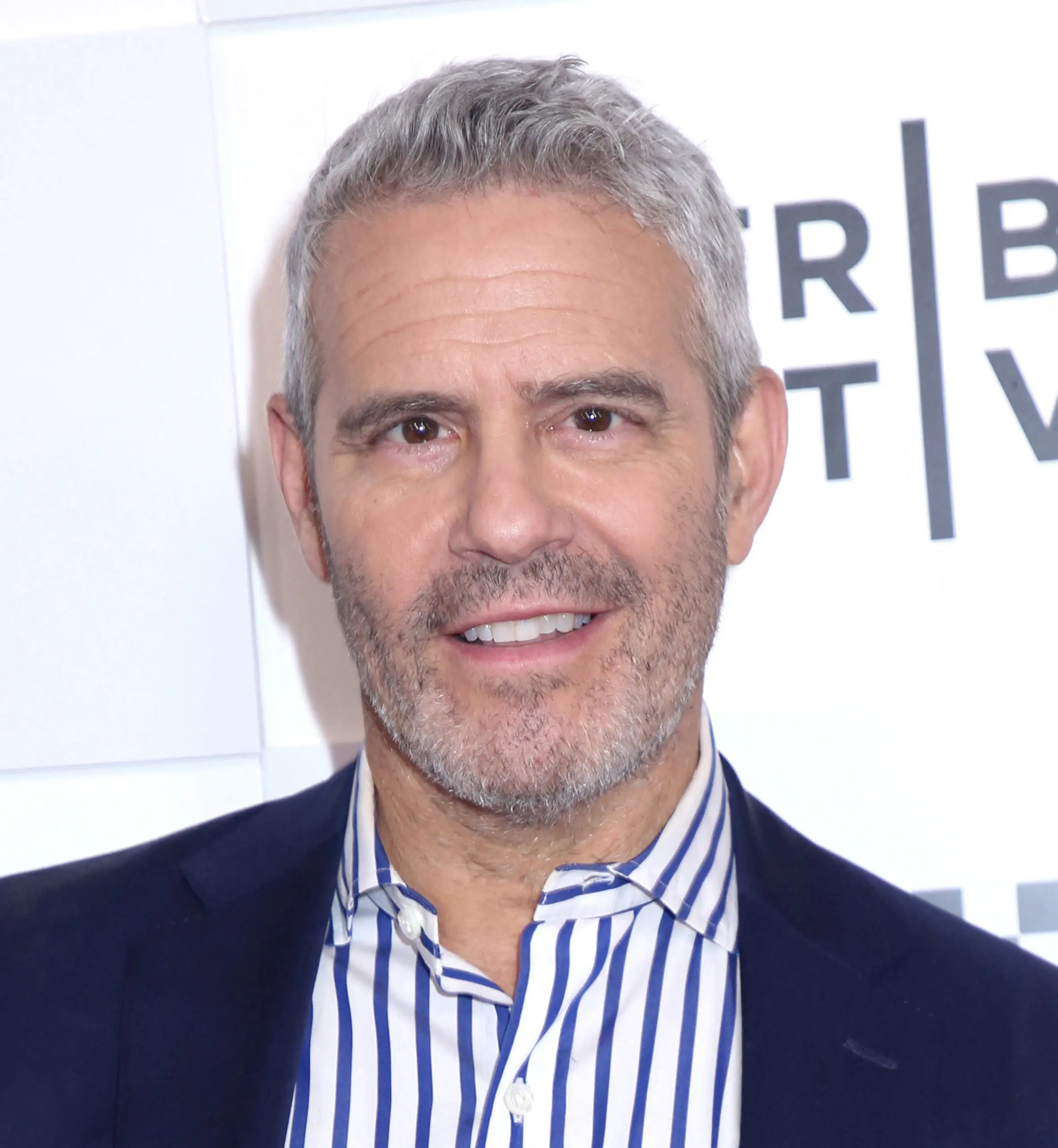
During a recent episode of his radio show, “Radio Andy,” the executive producer commented on the news that some of the franchise’s heavy hitters—including Ramona Singer and Sonja Morgan—are jumping to the E! Network for a new series centered on their lives.
The news that some of Bravo’s marquee players are starring in a new production on a different network comes years after Andy Cohen revealed that Bravo was relaunching “Real Housewives of New York” with an all-new cast after 13 years.
Article continues below advertisement
Andy Cohen Breaks His Silence On ‘Real Housewives Of New York’ Spin-Off Happening On E!
According to a press release from E!, Singer, Morgan, Jill Zarin, Kelly Bensimon, and Luann de Lesseps are reuniting for a new series tentatively titled “The Golden Life.”
“Bound by decades of shared history, fallouts and friendship, this fan-favorite group of New Yorkers are starting fresh together in the Sunshine State,” the show’s synopsis teased. “In this new ‘golden’ era of life, the longtime friends are thriving in and around Palm Beach with fabulous second homes and a bustling social scene. With their signature humor and non-stop hijinks, the series will follow the group as they navigate dating, family, and career milestones.”
However, the journey won’t be entirely seamless, as the synopsis also teased “unresolved drama” may reemerge after years away from the spotlight.
Article continues below advertisement
So, what did Cohen have to say about the news? “You know what? I’m so excited for them,” he declared.
Article continues below advertisement
Andy Cohen Shares More About The New York-Inspired Series ‘Golden Life’
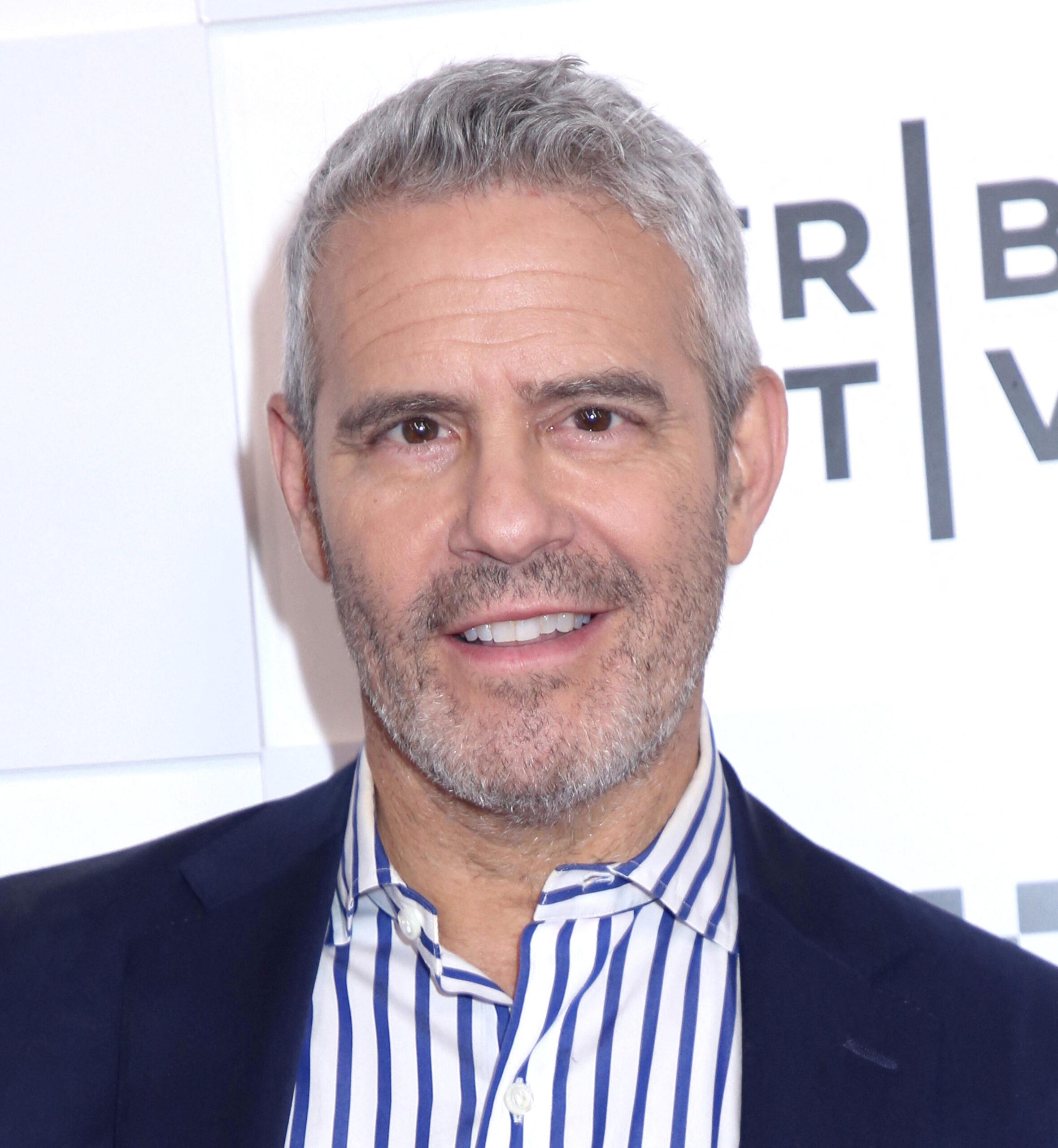
Cohen revealed that he reached out to the ladies after learning of the move, adding that he believes it will be “a great show” and that he could “never root against” them because he loves seeing them together.
Cohen also explained how the show came to be, stating that many of the women “all live in Florida,” except de Lesseps and Bensimon. He then reminded his listeners that they could watch the ladies get together on a recent season of “Real Housewives: Ultimate Girls Trip” on Peacock.
Article continues below advertisement
Andy Cohen Says The New York ‘Ultimate Girls Trip’ Felt Like The Series Finale
The “RHONY” legacy version of “Ultimate Girls Trip” originally aired on Bravo in 2023 and featured the aforementioned cast members, along with Dorinda Medley and Kristen Taekman. It premiered two years after season 13 (the last time the ladies were part of the network’s flagship show).
Speaking of the legacy trip to Saint Barthélemy, Cohen described it as “a series finale in a weird way.”
“They kind of wrapped it all up, but now they’re embarking on — their new lives, and yeah. So, I wish them well, and I’m happy for the fans who wanted to see this,” Cohen said.
Article continues below advertisement
“We’re thrilled to welcome reality TV royalty to E! for a reunion fans have been waiting for,” Val Boreland, President of Entertainment, VERSANT, said in a statement. “The energy within this group has always been electric and we’re excited to watch it unfold in a new chapter of life by the beach.”
Cohen Announces Rebooted ‘RHONY’ After 13 Years
The OG women of “RHONY” are reuniting after the series was rebooted and completely recast by Bravo in 2022. Cohen announced the bold decision to rebuild in a previous interview, according to the Daily Dish, explaining that producers felt they were “at a crossroads for [the show].”
Cohen also revealed that recasting the series would allow the network to tell different stories from a more diverse group of women.
“There are thousands of stories to tell here. This is the most multicultural, diverse, and energetic and exciting city in America: We are searching for a multicultural group of friends who really best reflect the most exciting city in the country. We’re looking for a group of women who are real friends, and who are of diverse backgrounds, races and religions,” he said.
Article continues below advertisement
Season 14 of the series aired in July 2023 and consisted of Sai De Silva, Ubah Hassan, Erin Lichy, Jenna Lyons, Jessel Taank, and Brynn Whitfield.
‘Real Housewives’ Is Turning 20!

Beyond the antics of the Big Apple alumni, fans will see several iconic faces later in 2026 when Bravo airs “Roaring 20th,” a special celebrating the franchise’s 20th anniversary.
According to The Blast, the limited series will feature many big names, including Porsha Williams, Kyle Richards, Vicki Gunvalson, Lisa Barlow, Teresa Giudice, and NeNe Leakes.
Entertainment
Michael B. Jordan keeps a stuffed black panther to remind him of late friend and costar Chadwick Boseman
:max_bytes(150000):strip_icc():format(jpeg)/Chadwick-Boseman-and-Michael-B-Jordan-022223-6bd4216399f84e479c4af0189dd990cc.jpg)
After a private four-year battle with colon cancer, Boseman died in August 2020 at the age of 43.
Entertainment
Kim Kardashian Reflects On Evolved Relationship With Kanye West

From lovers to being at odds, and then co-parents, the former lovebirds have truly entertained the media with their evolving relationship. Their decision to put their differences aside and prioritize family comes with high consideration of stability for their kids.
Kim Kardashian and Kanye ‘Ye’ West met back in 2012 and tied the knot two years later. They remained together, welcoming four children till she filed for divorce in 2021. The reality TV star has recently decided to give herself another chance at love with her new rumored boyfriend, Lewis Hamilton.
Article continues below advertisement
Kim Kardashian Gets Candid On The Status Of Her Relationship With Kanye West

Kardashian opened up about how much her relationship with Ye has changed throughout the years and where they stand currently. She revealed that their previously strained relationship has seen some positive light as they have found a way to co-parent their kids peacefully.
“We’ll always be family, “We both know that. We will be okay, and there’s so much love for our family. We want what’s best for our kids,” she said, hinting at how far they’ve come as a family.
The TV star said these after she was asked about when she praised her ex’s designs for the Yeezy brand while sporting a Yeezy heel in Aspen. She added, “I couldn’t deny the Yeezy heel, so I had to shout it out.”
Article continues below advertisement
Kardashian was seen in full support mode of her ex’s brand on social media when she shared a video of her outfits rocking the Yezzy boots. As shared by Complex in her latest cover story, the mother of four stressed:
“I will say, there’s nothing like a Yeezy heel. I don’t know if they ever made these or just made them for me. I love when a shoe is tonal to the pant.”
A significant piece of evidence that the former lovers were making an effort to put their issues aside because of their children was seen during the holidays as they celebrated Christmas together.
Article continues below advertisement
The Former Couple’s Bond Revived Because Of Their Daughter
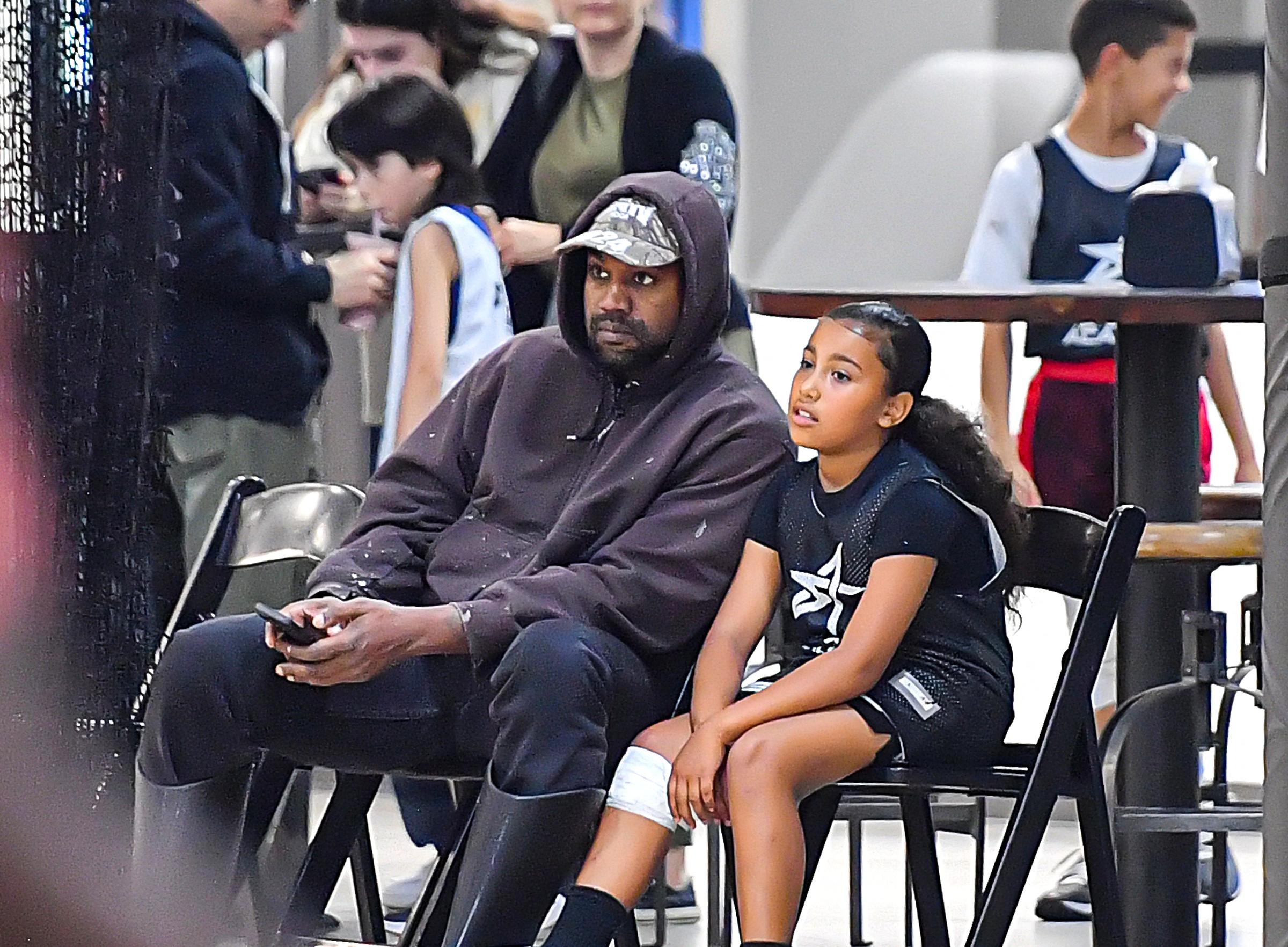
The reality TV star shared details on how her relationship with the artist began to thrive after years of being at odds due to their eldest daughter, North.
Since their very public split, the couple barely saw eye to eye on several matters, and their quarrels often became internet sensations, but as North spiked an interest in music, they put their issues on the back burner.
Kardashian shared this while talking to her sister on the “Khloé in Wonderland” podcast, and Khloé affirmed, saying, “You guys are in a much better place.”
The mom of four admitted that music and producing are not her strong suits, as they are with Ye. The Daily Mail shared that she affirmed that North and her dad bond over music.
Article continues below advertisement
“But even just like coming up with stuff, we have to communicate about how North moves through that world and all these opportunities that come her way and having to filter that and like respecting his opinion on the things that go on with his kids is really important,” Kardashian added.
Finally, she reiterated that for the sake of their kids, they have to put every other thing aside.
Article continues below advertisement
The Record Producer Had A Hard Time With His Divorce
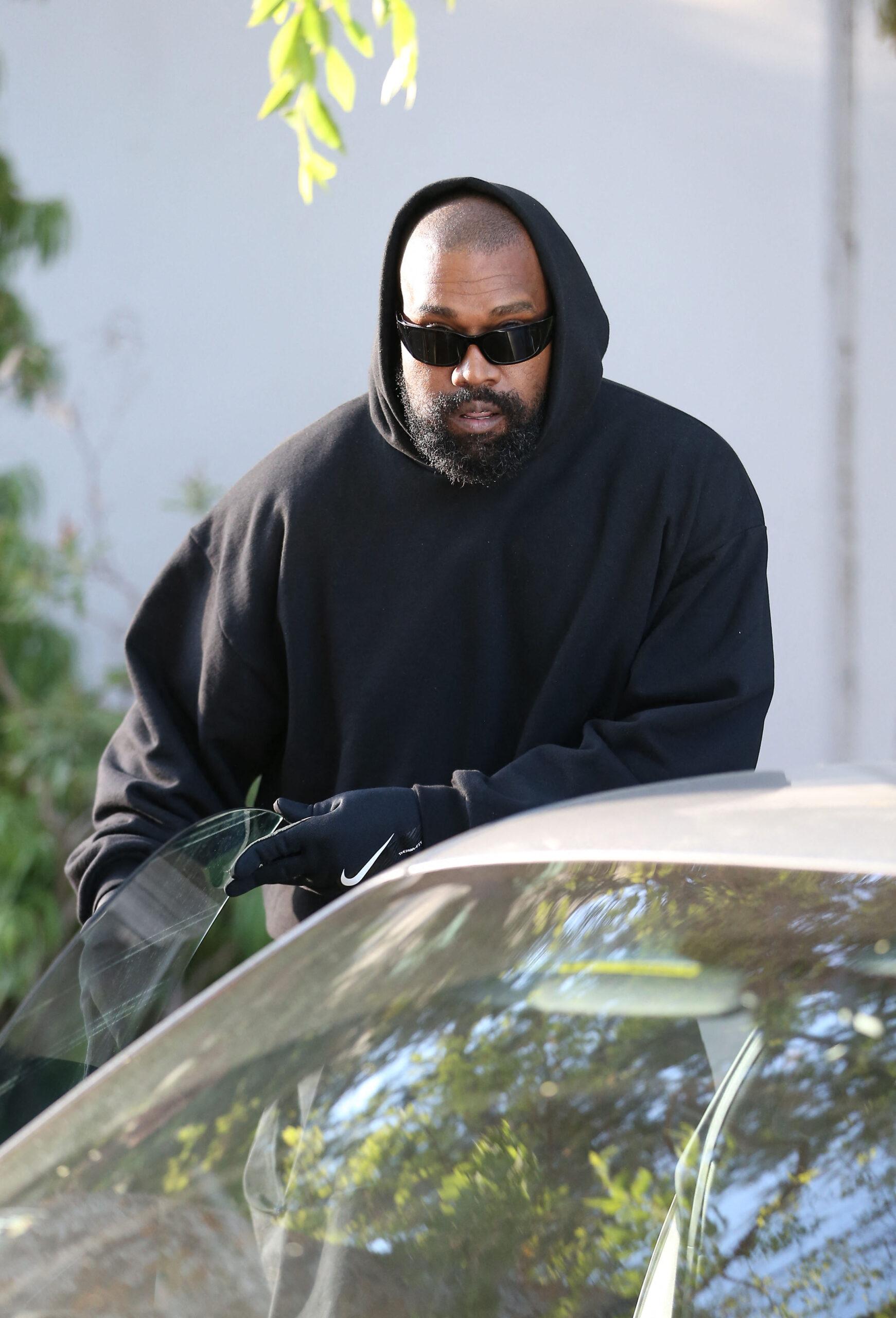
The end of Ye’s marriage was the beginning of a myriad of challenges. His behavior changed in the following years, costing him a lot in his career. Public isolation ensued for the rapper as major brands cut ties, industry invitations ceased, and longtime supporters grew distant.
As shared by The Blast, Ye’s mental state took a downward dive, and he started echoing words about the Jews whenever he was having an episode. “Well, the Jews killed Jesus, so they’re evil,” he would often say when he was feeling antisemitic. It got worse when he praised Nazis, wore swastikas, and released the song “Heil Hitler,” which resulted in bans from Australia and Brazil.
This led to more career fails as his income streams dropped and touring opportunities to certain countries went out the door. He apologized to New York Rabbi Yoshiyahu Yosef Pinto during a closed-door meeting later in November, showing deep remorse for his actions.
Article continues below advertisement
Kardashian And Ye Are Trying To Make Things Work
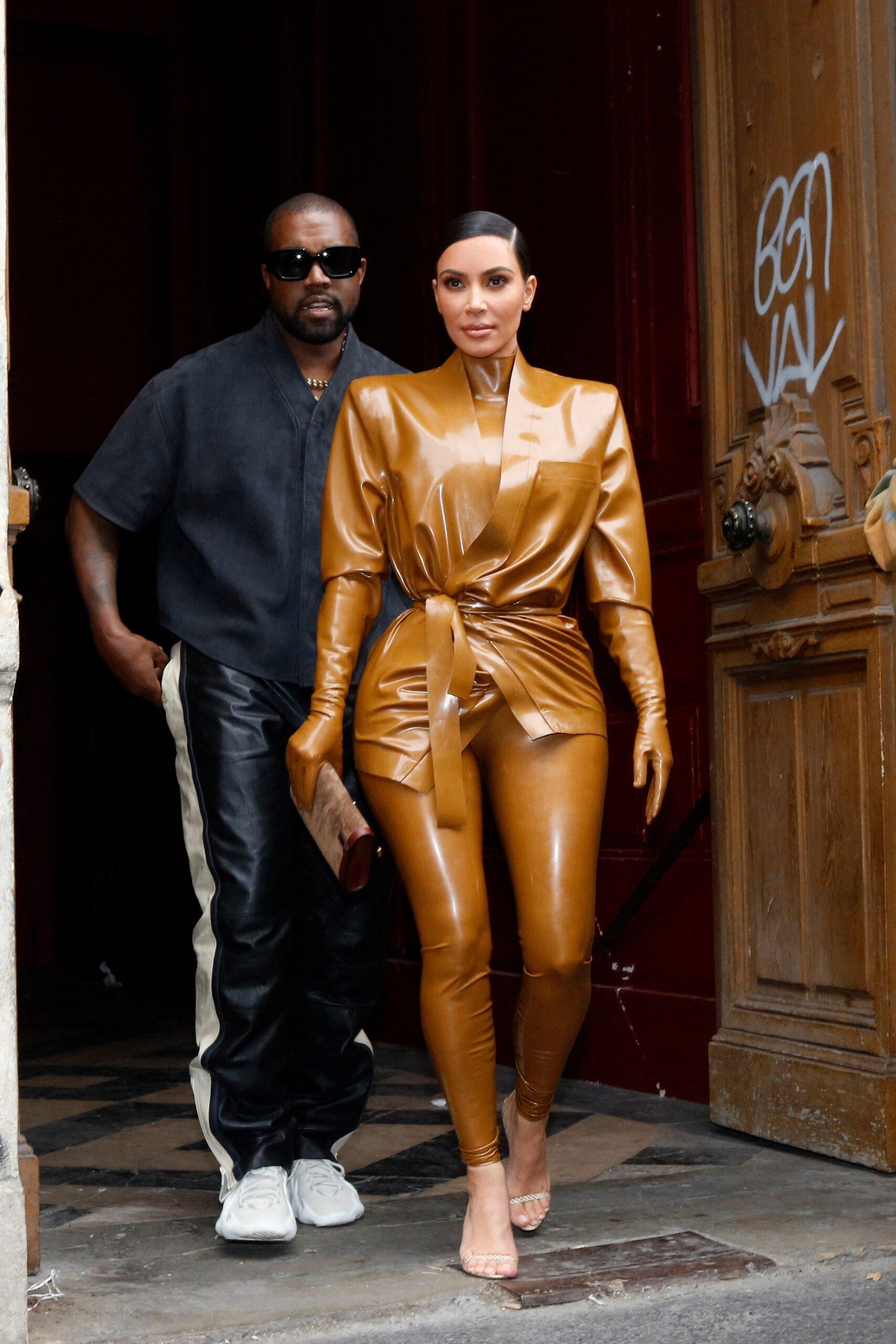
As earlier stated, the former couple is pulling out all the stops to ensure a healthy coparenting relationship. They spent Christmas together as a family, and the rapper has been actively working on himself. Not only are they building themselves, but also, Ye’s new partner, Bianca Censori, is building a relationship with the children.
North shared a selfie on her recently launched Instagram account of herself smiling and sitting next to Censori while they FaceTimed Babyxsosa. The Blast also notes that she has been spotted hanging out with Psalm, Saint, and Chicago as well.
North performed in the Lion King Concert event in 2024, where she sang “I Just Can’t Wait To Be King,” and her parents were there together supporting her. Kardashian also said that Ye not only showed up for the show but also came to rehearsals and gave his input to production.
Article continues below advertisement
Kim Kardashian Is Having A Swell Time With New Romance
Since her divorce from the songwriter, Kardashian has been back in the dating pool, linked to several men, including Pete Davidson and Odell Beckham. Currently, the 45-year-old has been spotted with racecar driver Lewis Hamilton despite their attempts to keep things low-key.
The Blast shares that Kardashian and Hamilton have been longtime friends, but since their recent sightings in the U.K and Paris, it appears that they have taken their relationship a notch further. As per sources close to the pair, they are just having fun and keeping things casual for now.
They have a friends-with-benefits relationship going for now as they are not dating exclusively. Reportedly, Hamilton is not looking to settle down soon nor be a stepdad. For now, they are focused on enjoying romantic moments together, like the intimate dinner and spa date they had in the United Kingdom.
A massive shoutout to Kim Kardashian and Kanye ‘Ye’ West for coming this far!
Entertainment
Luke Combs Puts Family First Over Pre-Super Bowl Headliner

Luke Combs has his priorities set, and at the top of that list is family!
The soon-to-be father of three pulled out of his performance at the pre-Super Bowl concert at the last minute to be there for his baby’s birth. Giving up what would have been the first of its kind performance for the artist, he is being replaced as the headliner for the event by country artist Zach Bryan.
Luke Combs has been very vocal about his love for his wife, Nicole Hocking, through the lyrics of his songs. The pair got married in August 2020 after dating for a few years. They are currently parents to two sons born in 2022 and 2023.
Article continues below advertisement
Luke Combs Presses Pause On Dream Performance For Family

Combs has previously disclosed his dreams of performing at the Super Bowl. Even though his now-cancelled performance was for the Madden Bowl concert, it would have marked a steppingstone for the artist.
He has now pulled out of his performance at the Chase Center in San Francisco, scheduled for Friday, Feb. 6, ahead of Super Bowl LX. EA Sports announced via their official Instagram account on Thursday, writing, “Update: Luke has to hold it down at home with a new one on the way.”
The caption also announced that Bryan would be replacing Combs after sending love to the musician and his family. The soon-to-be dad of three also affirmed the news on his Instagram story, emphasizing the reason for the last-minute cancellation. He wrote:
Article continues below advertisement
“So sorry to miss y’all at Madden Bowl, but family always comes first. Have a great time.”
The comments were filled with half of the fans hyped about the drama between Combs replacement and Gavin Adcock, and the other half requesting for how to get tickets.
Article continues below advertisement
The Couple Made Their Baby Announcement In September

In September 2025, the couple revealed that they were expecting their third child with a joint Instagram Video post captioned “Third time’s a charm! Baby #3 coming this winter [white heart emoji].”
The footage showed them sitting on the grass holding the sonogram excitedly, while their two sons, Tex and Beau, sat with their backs turned towards the camera.
Moments after, Hocking shared a screenshot of a text message thread between her and their manager, Sophia Sanson, where she reveals that her husband was performing his song “Days Like These” at the same time she posted the pregnancy announcement video.
Article continues below advertisement
“When @lukecombs is in London playing Days Like These at the exact time I posted the announcement [teary eye emoji, white heart emoji]” she penned under the screenshot on her Instagram Stories.
Page Six also shares that Hocking was into her pregnancy era. She posted a series of photos flaunting her baby bump while sitting on the sandy beach amid smiles.
Article continues below advertisement
The Musician Was Nervous To Become A First-Time Father

The loving couple became a family of three in June 2022 when their eldest son, Tex Lawrence, was born. Combs admitted that although he was excited to become a parent, there was a nuance of nervousness that engulfed him at the thought of becoming a father for the first time.
A year later, in August 2023, their second son, Beau Lee, was born. In 2024, the artist told PEOPLE that his sons were his source of inspiration for his album “Fathers & Sons.”
He said that he wants them to be able to look back later in life and see that even through a successful career, they were still his priority. He added, “If anyone’s dad had the opportunity to do something like that, I think that they would take it. At least I would hope so. I did it for them.”
Comb showed that amid his busy schedule, he spends quality time with his children via a series of rare photos he shared on social media. One showed the boys lying on the floor playing with their toys, another featured Combs playing the guitar while Beau bounced in an exersaucer.
Article continues below advertisement
Inside Nicole Hocking And Luke Combs’ Relationship

Combs and Hocking became friends through their mutual friends shortly after she moved to Nashville in 2014. Two years later, they crossed paths at a songwriters’ festival in Florida and began dating shortly after.
They went Instagram official after Hocking shared a picture of them in March 2017, and after this, more cute moments were captured. The singer proposed to the love of his life in November 2018 and tied the knot two years later in an intimate ceremony in Florida.
He gave fans a rare glimpse of their wedding in the music video for “Forever After All.” The 35-year-old announced that their family was expanding in January 2022, writing, “Here we go y’all! Lil dude Combs is coming this Spring, couldn’t be more excited to start a family with this babe.”
US Magazine notes that the couple mark milestones such as birthdays, anniversaries, and celebrations with heartfelt posts on their different social media accounts.
Article continues below advertisement
The Country Singer Was Caught In A Legal Fiasco With A Fan

A $250,000 lawsuit was filed on behalf of the country singer against a fan, Nicole Harness, for selling merchandise with Combs’ face on it. Harness, at the time of the lawsuit, had sold about 18 Luke Combs-themed Tumblers on her Amazon store.
The judge ruled that Harness was to pay Combs the court-ordered amount and all future sales from her store would go to the singer till the $250K was paid in full.
Combs was initially unaware of the lawsuit, as he revealed he employs a company that goes after large corporations operating internationally that make millions from counterfeit t-shirts and run illegal businesses.
The Blast shared that the 35-year-old was saddened that Harness had gotten wrapped up in the situation, and he sent a heartfelt apology to her. He described it as a misunderstanding and also went a step further, inviting her and her family to a show so he could apologize in real time and hug her.
Congratulations to Luke Combs!
Entertainment
General Hospital: Willow’s Sinister Plan for Drew Unfolds – Can He Escape Alive?
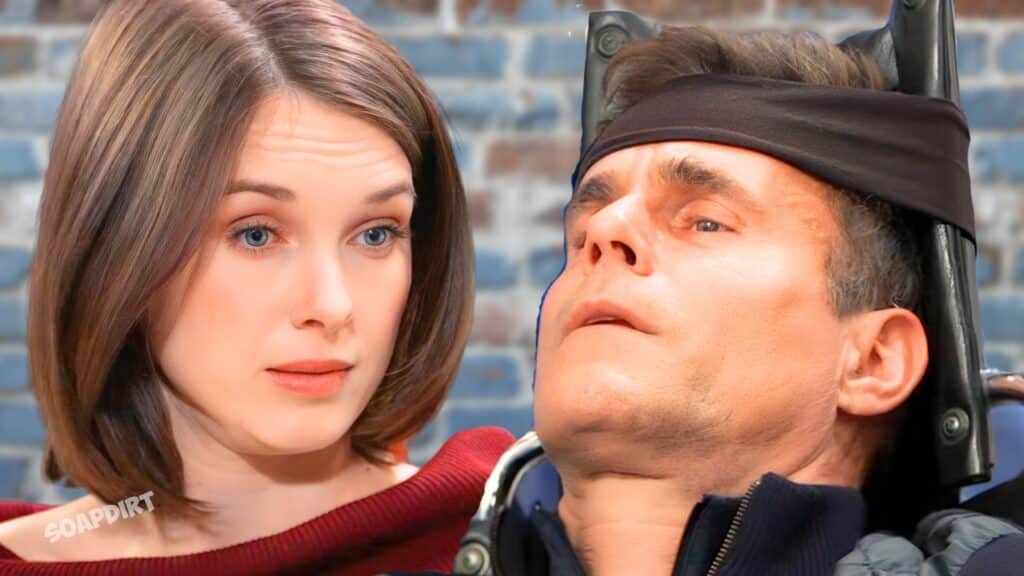
General Hospital exposes Drew Cain Quartermaine (Cameron Mathison) home with Willow Tait (Katelyn MacMullen), and she is not holding back anymore. She dropped a few bombshells on Drew to let him know what she’s done. Honestly, there’s no telling what Willow has in store for Drew.
We’re going to talk about how Willow plans to torture Drew now that he is at her mercy and she wants some payback for him controlling her life for so long. The question is, is he going to come out of this in one piece?
Willow Tait’s Shocking Confession and Drew Cain’s Locked-In Syndrome on General Hospital
All right, so we just saw Willow stun everybody at General Hospital with her decision to bring Drew home for her to take care of, although she did say she’s going to hire in some help. Drew knows already that Willow caused his stroke because she stabbed Drew in the neck with a syringe. Right after Willow injected him, Drew collapsed, reaching his hand out for her with a look of shock on his face.
He knows she did that to him, but now he’s wound up with locked-in syndrome and he can’t tell anybody what Willow did. He couldn’t say anything about her taking him home from the hospital. Once she got Drew home, Willow showed Drew her rage right away. She pulled off the mask and dropped a big, bad truth bomb on him.
I loved seeing Willow tell Drew that she’s the one who shot him twice in the back. Although he can’t say anything to Willow, you could see that Drew is in utter shock. The good thing is Cameron Mathison has those big eyes that he can express things with. In a recent interview, Katelyn MacMullen said she thinks Willow didn’t want Drew dead, just incapacitated.
The Secret Witnesses: Can Kai & Trina Save Drew?
It sounds like Willow intended to disable Drew to get some form of long, slow revenge. Now he knows Willow shot him with intent to kill, but that failed to take his life. With Drew still alive, it seems like Willow decided to go another route and she caused Drew’s catastrophic stroke.
He cannot tell a soul what Willow did. As long as Drew has locked-in syndrome, that’s not going to change. As of now, Willow assumes that Drew is going to be stuck like this for a very long time based on the prognosis she got from Lucas Jones (Van Hansis). Willow made it clear to Drew that he has got to listen to her.
There is one guardrail in place she doesn’t know about – Kai Taylor (Jens Austin Astrup) and Trina Robinson (Tabyana Ali) know that Willow shot Drew. Kai shut down Trina when she demanded that he quit working for Drew.
He told Trina he can’t do that because he needs to keep an eye on Willow and try to protect Drew in case he’s in ongoing danger. Kai can’t be there all the time, but thankfully, Willow doesn’t know that Kai knows she shot Drew, or she might turn on Kai, too.
Willow’s Survival Mode: Why She Feels Drew Cain Quartermaine is a Threat on GH
In another recent interview, Katelyn MacMullen talked about where exactly Willow’s head is at right now. She said, “The big show that Willow’s putting on where she’s acting distraught over Drew’s stroke is somewhat legit.” The Willow actress said, “I think part of her is devastated that it has to happen.”
She said Willow’s not proud of what she’s been doing, but she’s in survival mode and felt like she had no choice when it came to Drew. The actress also said that Willow thinks with Drew in the picture, she’s not safe and nobody around her is safe either. Since Willow failed to kill Drew by shooting him, him being incapacitated is the next best thing on General Hospital.
Willow’s in control now and Drew is totally powerless. Willow’s calling the shots and is very happy about it. She referred to Drew as her captive audience and she seems very pleased that he’s basically her prisoner because he’s trapped in this cage that is his body. Willow has big plans and she expects Drew to be at her mercy for a good long while.
Torture Tactics: How Willow Plans to Pay Back Drew Cain Quartermaine on General Hospital
Let’s talk about exactly what Willow may do to Drew. There’s the big question of how far Willow will go and, long term, if Drew is going to survive being cared for by his not-so-loving wife. The first thing I can see on Willow’s agenda is to pay back Drew for her losing her kids, which she totally blames him for.
Willow just won 40% custody of Wiley Quartermaine Corinthos (Viron Weaver) and Amelia Grace Corinthos (Sequoia and Serenity Mork Macko), but that doesn’t make up for the time she lost with them because of Drew.
I think Willow may keep Scout Cain (Cosette Abinante) away from Drew. She already has Scout staying with Alexis Davis (Nancy Lee Grahn). As long as the lady lawyer is playing nice with her, Willow is probably going to drop the restraining orders against all of them because she’s got the power of attorney.
That includes Danny Morgan (Asher Jared Antonyzyn) so that he can see his sister Scout. Willow can just explain to Alexis that she thinks Scout seeing her dad like this might be really traumatic.
They may agree to limit Scout’s time with Drew or totally keep her away from him for the foreseeable future. Losing Scout will enrage and devastate Drew, but there’s nothing he can do about it.

Physical and Psychological Revenge in the General Hospital Plot
Second, Willow may do some smaller aggressions—just more kind of icky, annoying things. She might feed Drew icky food, slop, gruel, or vegetables she knows he hates all mushed up. Willow may want to make sure that Drew has no strength left in him so there’s no way he can recover or fight back. Plus, it would be harmless but pretty petty payback.
The third thing I could see is Willow drugging Drew to discourage visitors from sticking around too long and to keep him weak, pliable, and under control to slow down any chance of recovery. Also, if Willow sees that Drew is trying to communicate with any visitors, drugging him would put a stop to that.
The fourth thing I could see is that Willow could be really cruel and hurt Drew physically. Willow can’t do anything that would leave a lasting mark or a bruise, but she could pinch Drew, slap him, or stick him with pins. She can engage in mental cruelty and verbal abuse, which don’t leave marks except on your psyche, and I think she feels like Drew deserves all that.
Deep-Seeded Rage: Willow Tait’s History with Controlling Men
The last thing I think Willow might do, which would be totally cruel, is bring over some other man to fool around with in front of Drew since he was sleeping with her mom, Nina Reeves (Cynthia Watros), behind her back. I could see Willow thinking, “Okay, this is some kind of payback I want to do, too.”
She could bring home some random person and make sure Drew saw them together, or maybe someone like Ezra Boyle (Daniel Cosgrove) who might enjoy something kinky like that because he’s a perv.
I think really nothing is off-limits for Willow right now. This is more than just her getting revenge on Drew for what he did to her life; Willow may be looking for revenge for all the wrongs that a lot of men have done to her, past and present, both actual and perceived.
Willow spent years under Shiloh’s controlling thumb. He raped her with her adoptive mom Harmony’s blessing. Her dad ditched Willow and left her in that cult life. Plus, she sees herself as a victim of Michael Corinthos‘ (Rory Gibson) because he kept the kids from her. She totally blames Michael for all that.
This is Willow’s opportunity to let out all this simmering rage that’s been building up her whole life. I think she’s going to unleash it on Drew while he’s helpless. Honestly, aside from Kai, I don’t think anybody would care even if they did find out that Willow’s torturing Drew.
-

 Video4 days ago
Video4 days agoWhen Money Enters #motivation #mindset #selfimprovement
-

 Tech3 days ago
Tech3 days agoWikipedia volunteers spent years cataloging AI tells. Now there’s a plugin to avoid them.
-

 Politics5 days ago
Politics5 days agoSky News Presenter Criticises Lord Mandelson As Greedy And Duplicitous
-

 Crypto World7 days ago
Crypto World7 days agoU.S. government enters partial shutdown, here’s how it impacts bitcoin and ether
-

 Sports6 days ago
Sports6 days agoSinner battles Australian Open heat to enter last 16, injured Osaka pulls out
-

 Crypto World6 days ago
Crypto World6 days agoBitcoin Drops Below $80K, But New Buyers are Entering the Market
-

 Tech6 hours ago
Tech6 hours agoFirst multi-coronavirus vaccine enters human testing, built on UW Medicine technology
-

 Crypto World5 days ago
Crypto World5 days agoMarket Analysis: GBP/USD Retreats From Highs As EUR/GBP Enters Holding Pattern
-
Sports16 hours ago
New and Huge Defender Enter Vikings’ Mock Draft Orbit
-
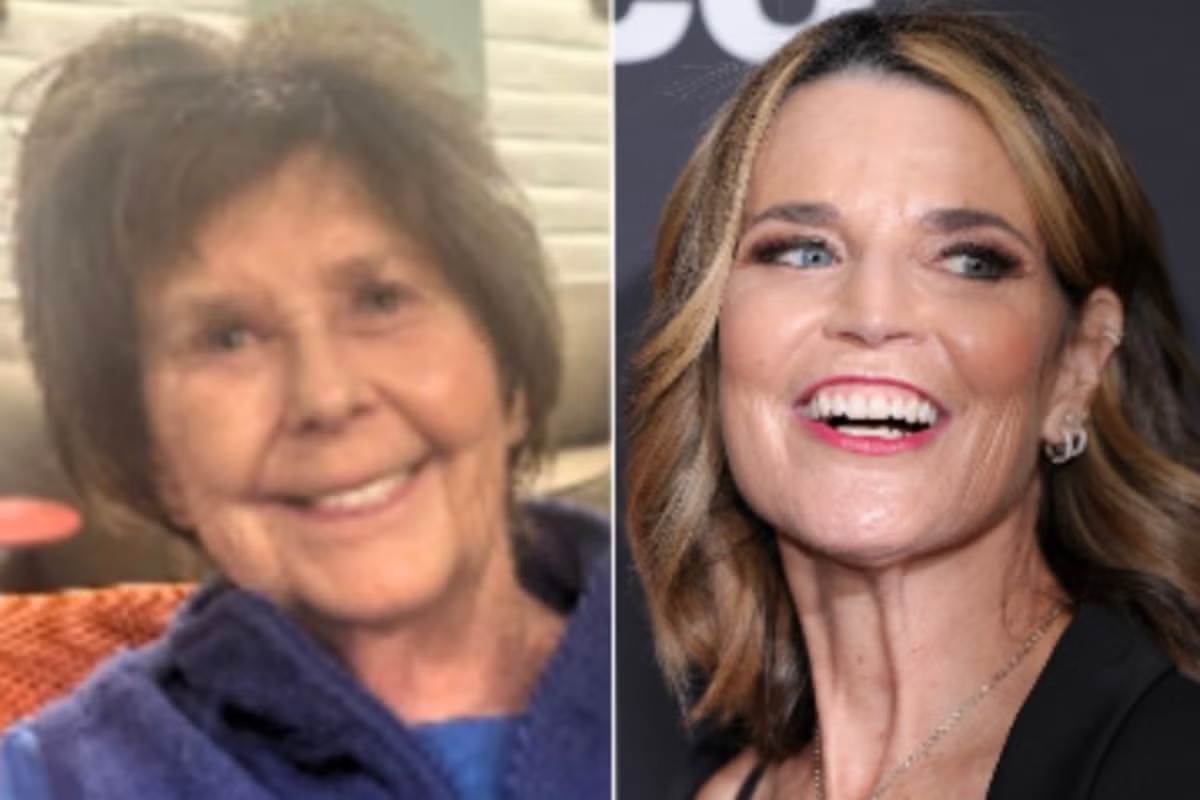
 NewsBeat12 hours ago
NewsBeat12 hours agoSavannah Guthrie’s mother’s blood was found on porch of home, police confirm as search enters sixth day: Live
-

 Business1 day ago
Business1 day agoQuiz enters administration for third time
-

 NewsBeat4 days ago
NewsBeat4 days agoUS-brokered Russia-Ukraine talks are resuming this week
-

 Sports5 days ago
Sports5 days agoShannon Birchard enters Canadian curling history with sixth Scotties title
-

 NewsBeat5 days ago
NewsBeat5 days agoGAME to close all standalone stores in the UK after it enters administration
-

 NewsBeat2 days ago
NewsBeat2 days agoStill time to enter Bolton News’ Best Hairdresser 2026 competition
-

 Crypto World3 days ago
Crypto World3 days agoRussia’s Largest Bitcoin Miner BitRiver Enters Bankruptcy Proceedings: Report
-

 Crypto World1 day ago
Crypto World1 day agoHere’s Why Bitcoin Analysts Say BTC Market Has Entered “Full Capitulation”
-
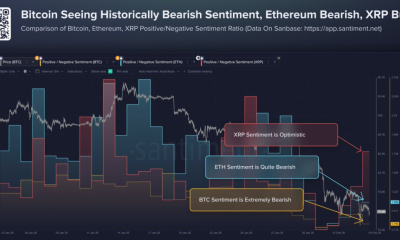
 Crypto World1 day ago
Crypto World1 day agoWhy Bitcoin Analysts Say BTC Has Entered Full Capitulation
-
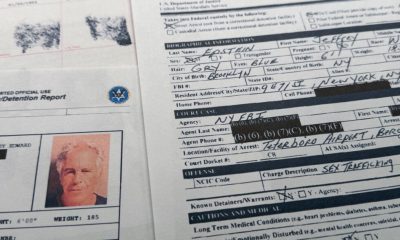
 NewsBeat4 days ago
NewsBeat4 days agoImages of Mamdani with Epstein are AI-generated. Here’s how we know
-

 Tech7 days ago
Tech7 days agoVery first Apple check & early Apple-1 motherboard sold for $5 million combined


